Antigone
In 2019, Court announced its plans to stage Sophocles's trilogy, Oedipus Rex, Oedipus at Colonus, and Antigone, bringing the full story of the cursed Oedipus line. It is a delight to those who love Greek tragedies to witness Oedipus Rex, where Oedipus, King of Thebes, learns of a prophecy that he will kill his father and marry his mother. After realizing the gravity of what he had done, his remorse grieved his spirit and haunted his soul, that he could no longer bear to live amongst the people he had wronged — he blinds himself and leaves Thebes forever. Then, in Oedipus at Colonus, Oedipus seeks redemption for his mind, body, and soul. Court brilliantly brings in the joys and pain of gospel music to tell the story of Oedipus seeking a place to rest from his torment and is led to the city of Colonus, where the gods absolved him of his guilt, and he died in peace. However, the tragedy within the family continues in Antigone. Two brothers, Eteocles and Polyneices, sons of Oedipus, were cursed by their father, who, arrogance and thinking himself to be a god that would never die, failed to name his successor to the throne —causing his sons to battle for control of Thebes, which lead to them both being murdered in a civil war. And the story of Antigone and her tragic journey begins. Antigone loved both of her brothers. However, Creon, now King of Thebes, decreed that Eteocles would be buried with honor, but Polyneices' corpse was not to be buried or even mourned because he betrayed his own country. Seeking to disgrace Polyneices, Creon decreed that anyone attempting to bury him would be executed, as he sought to disgrace his name. The decree infuriates Antigone, and she seeks the help of her sister Ismene, but fear moves within her spirit, and she refuses to help. When Creon learns of this betrayal, he sentences her to die, setting off a death sentence for his son, Haimon, who loved Antigone.
One of the greatest tragedies written, Sophocles's trilogy isn't for the newbie to theater. It reaches back to a time when a male-dominant legacy was supreme, women were treated like property, and a female child born first was considered a disgrace. Women were considered inferior and subjected to a fundamentally sexist belief system that often made them victims of discrimination and prejudice. Women had very limited political rights and were subjected to the control of men throughout their lives. Their role was to bear children, with a preference for male offspring, and manage their households. So when Antigone defied Creon's orders not to bury Polyneices, she insulted his throne to the kingdom, and in his mind, she needed to be an example to those who sought to disobey his command.
“I was born to share in love, not hate”
Filled with rage, arguments, and mistrust, which becomes Creon's downfall, Antigone, translated by Founding Artistic Director Nicholas Rudall, also deals with love and loss. She has lost a father and brothers and soon will leave a sister behind to face the grief of lost love. Under the direction of Gabrielle Randle-Bent, Bent mentions that as a director, she looks at her work as an offering, a sacrifice to the altar of art and understanding. Bent brilliantly blends Greek tragedy with modern-day gospel, rap, and Greek step-dancing that's innovative and creatively opens the door to a new audience seeking to recreate its own unique genre when examining historical plays. I got lost in the new translation of this production. Not to say it wasn't refreshing and exhilarating, but as a person who loves Greek tragedies, the beginning of this spirited narrative surprised me. It reminded me of the time we went to Drury Lane, and they did a new production of Joseph and the Amazing Technicolor Dreamcoat, with a plane flying over Vegas, with hookers and with males dressed as women. Joseph, ATD, is a big-time religious music that shocked older people, AARP, and theater audiences, with some walking out and not returning for the second act. Antigone isn't that dramatic, but it threw me for a loop. Bent reminds us that Antigone was written for you in mind, meaning every generation and all humanity, regardless of age. Kudos to her for introducing us to this bold adaptation.


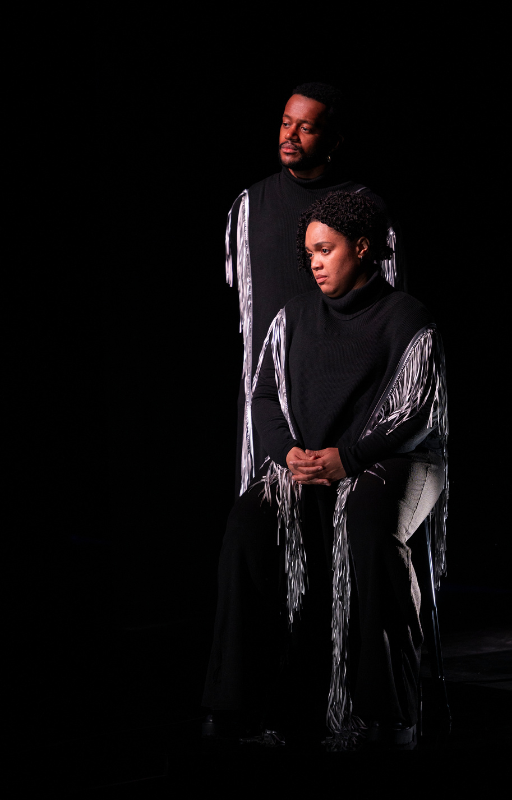
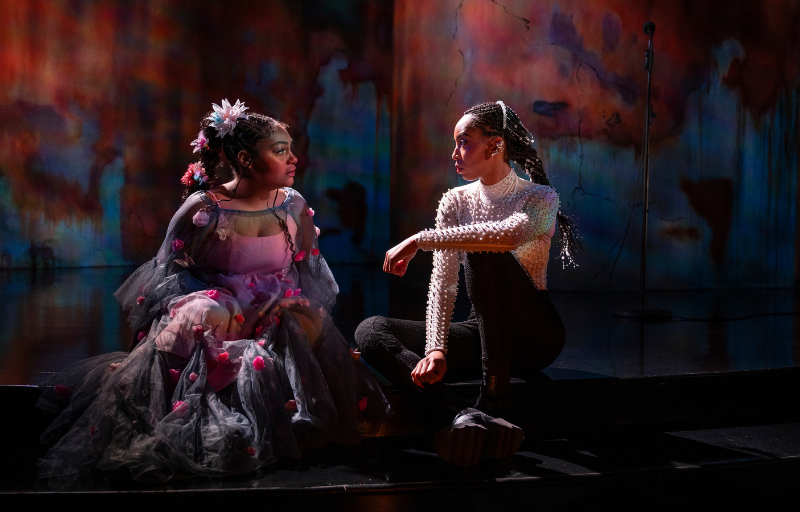
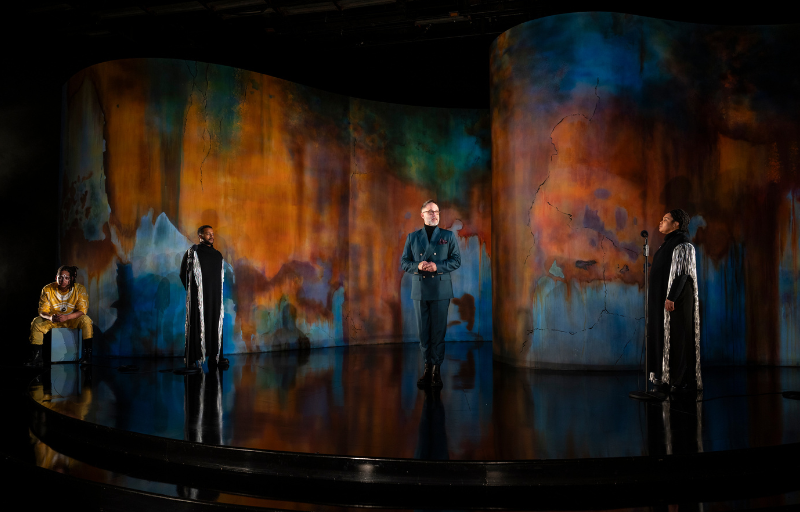
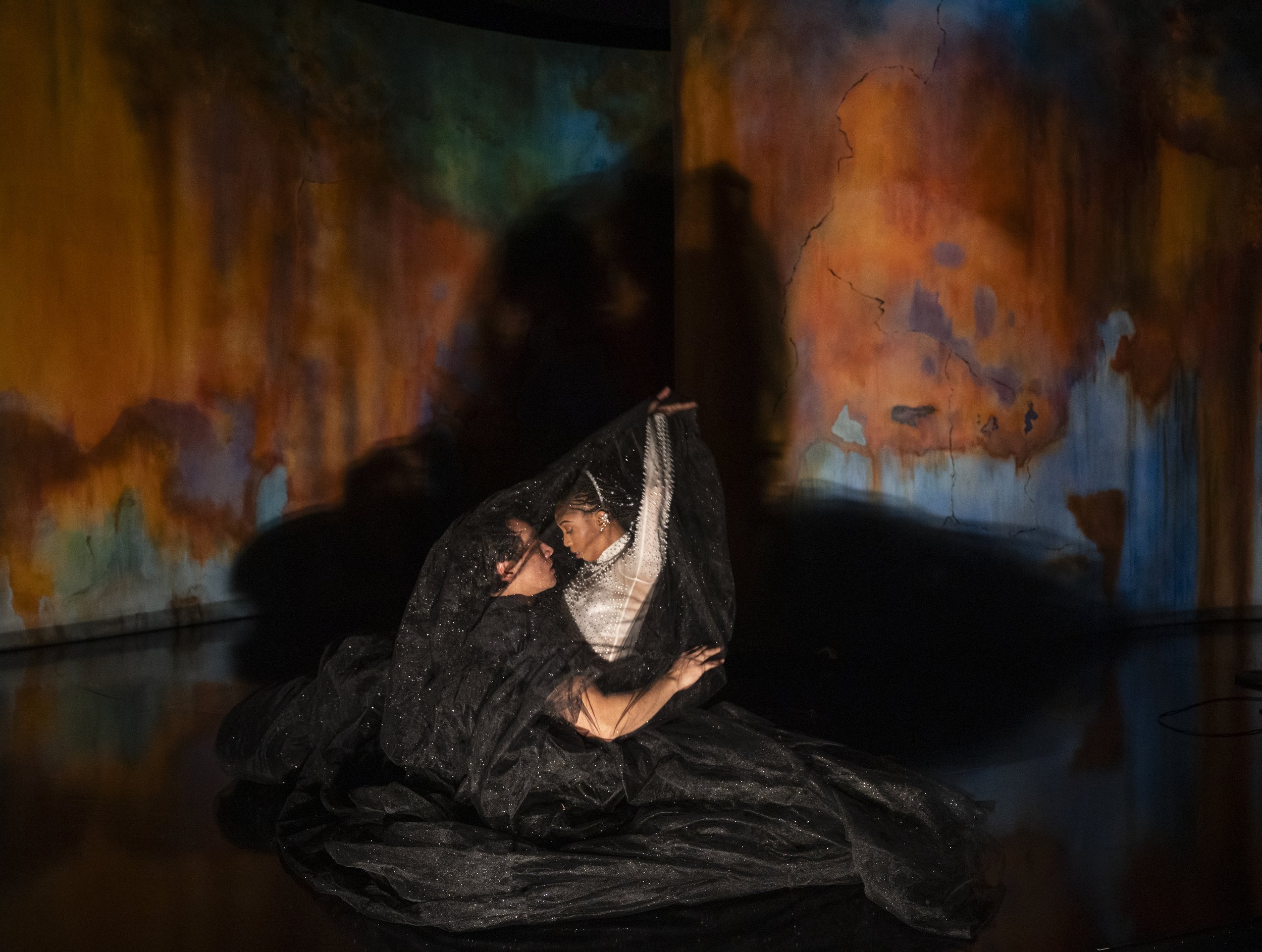

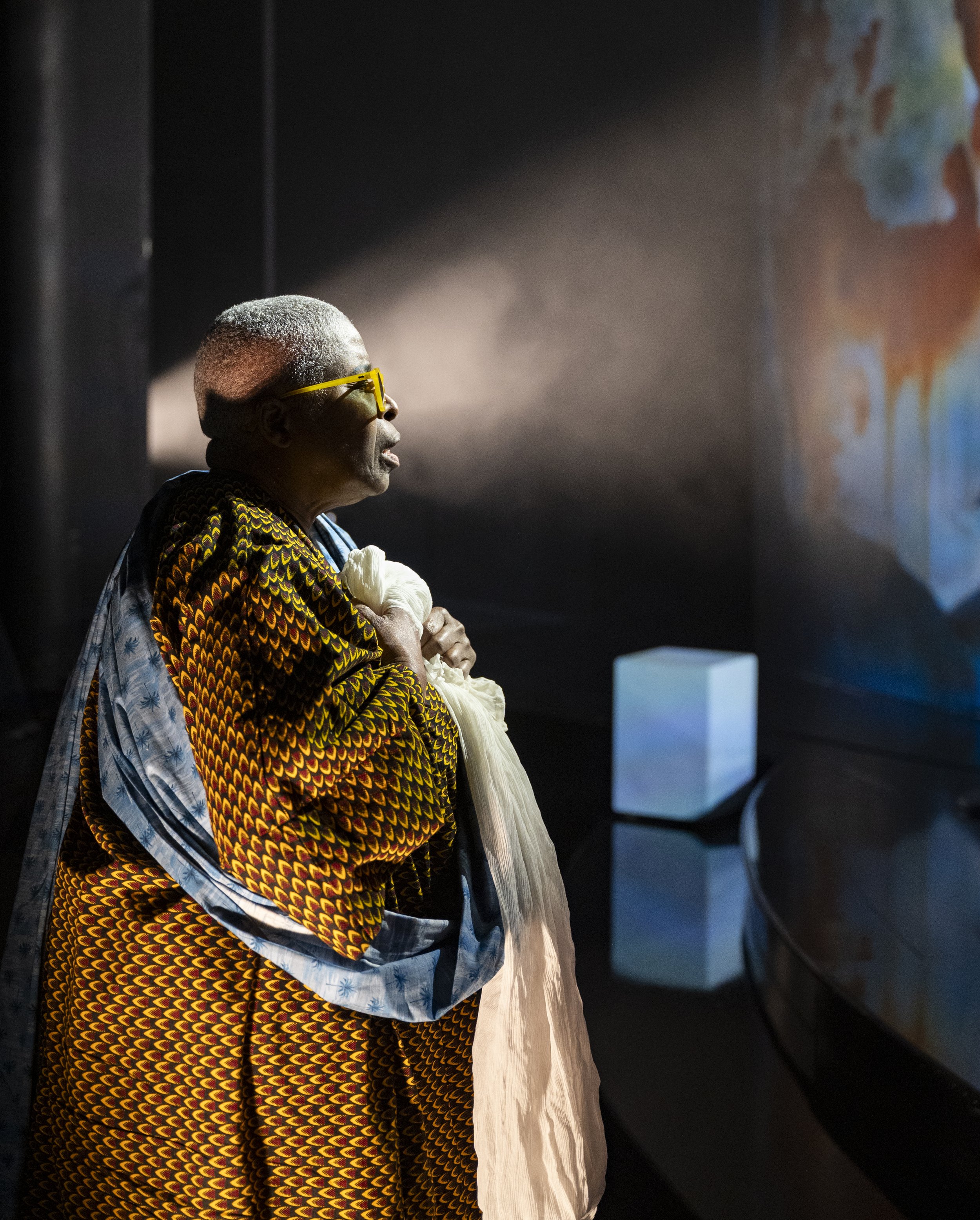
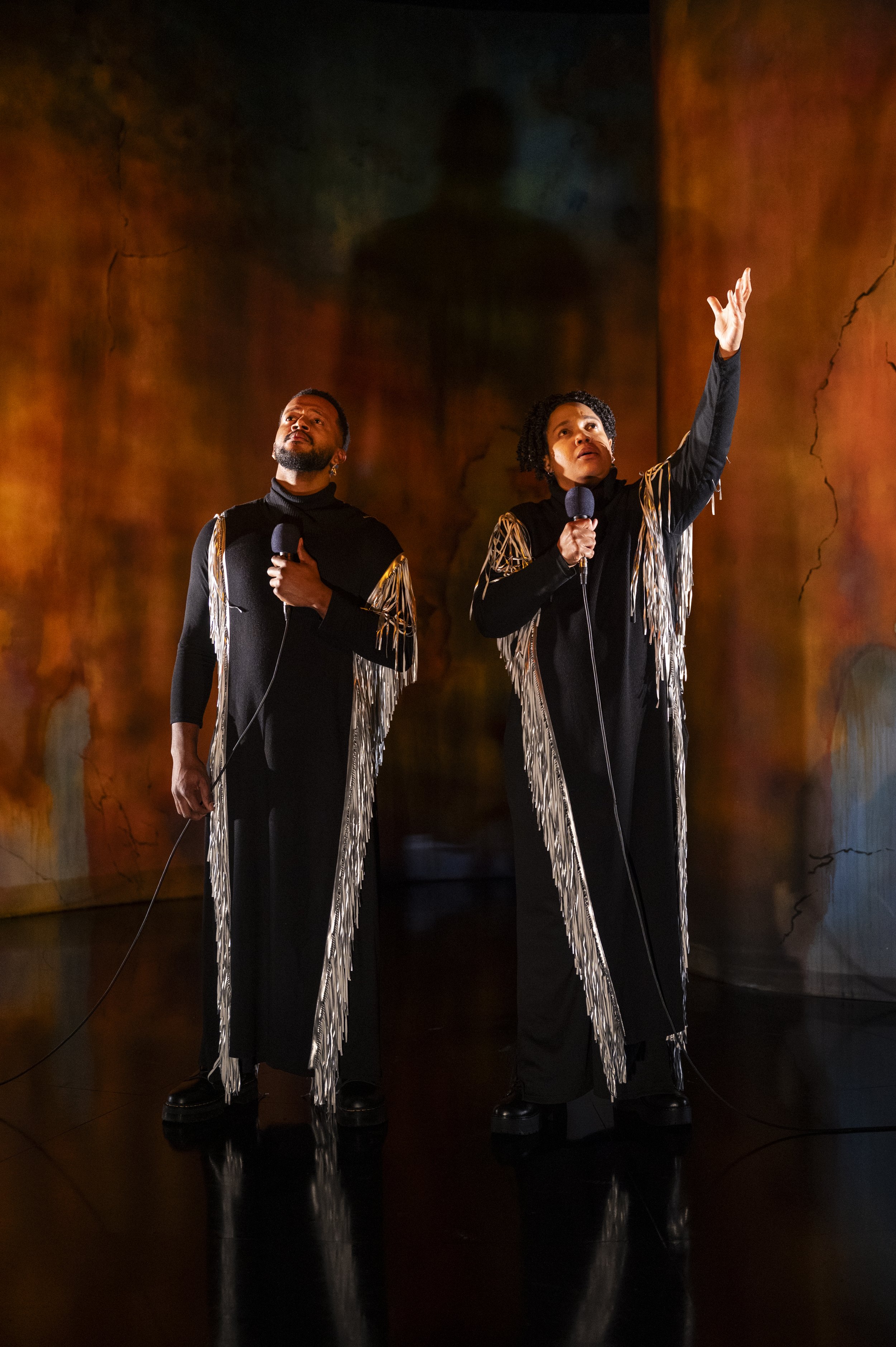

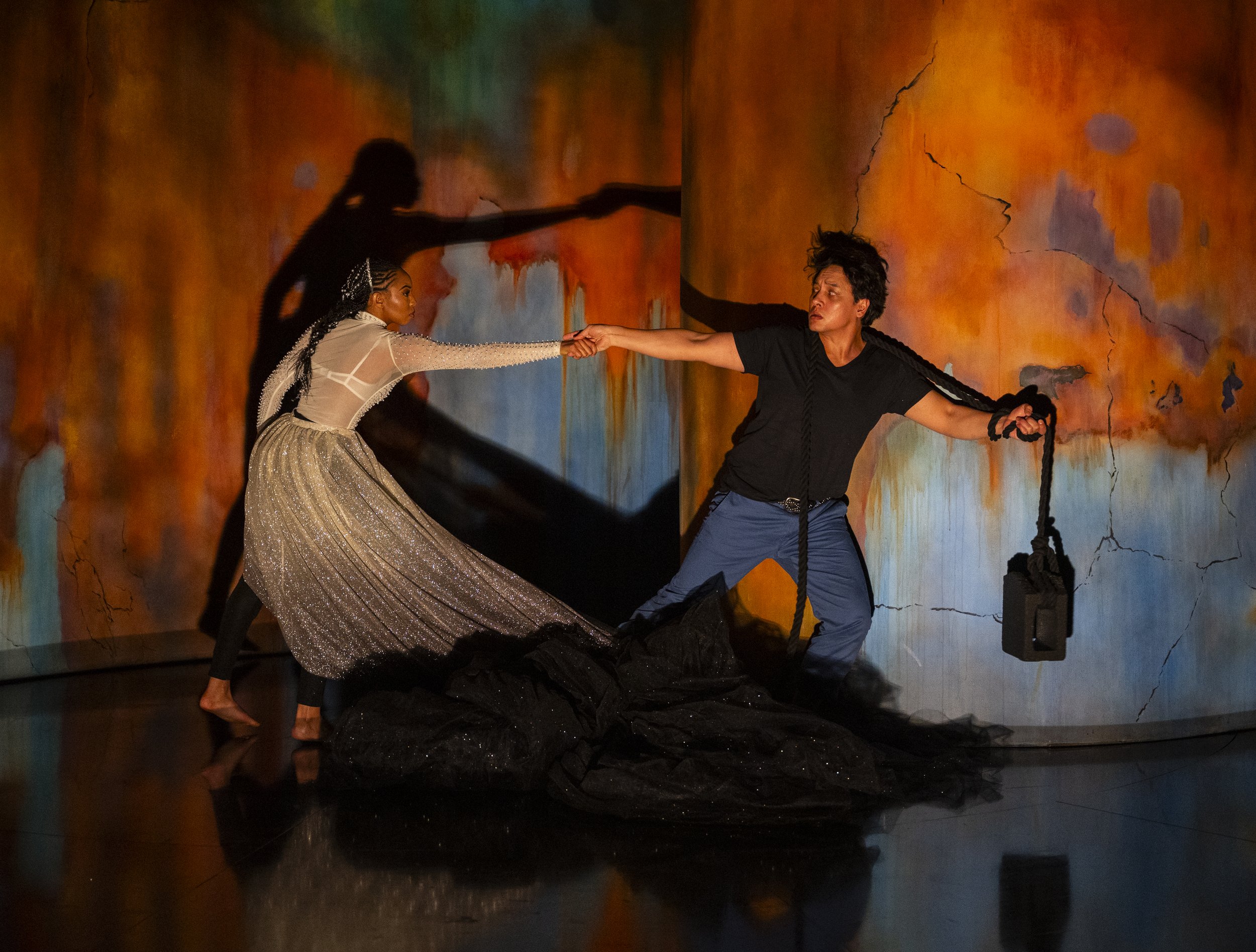
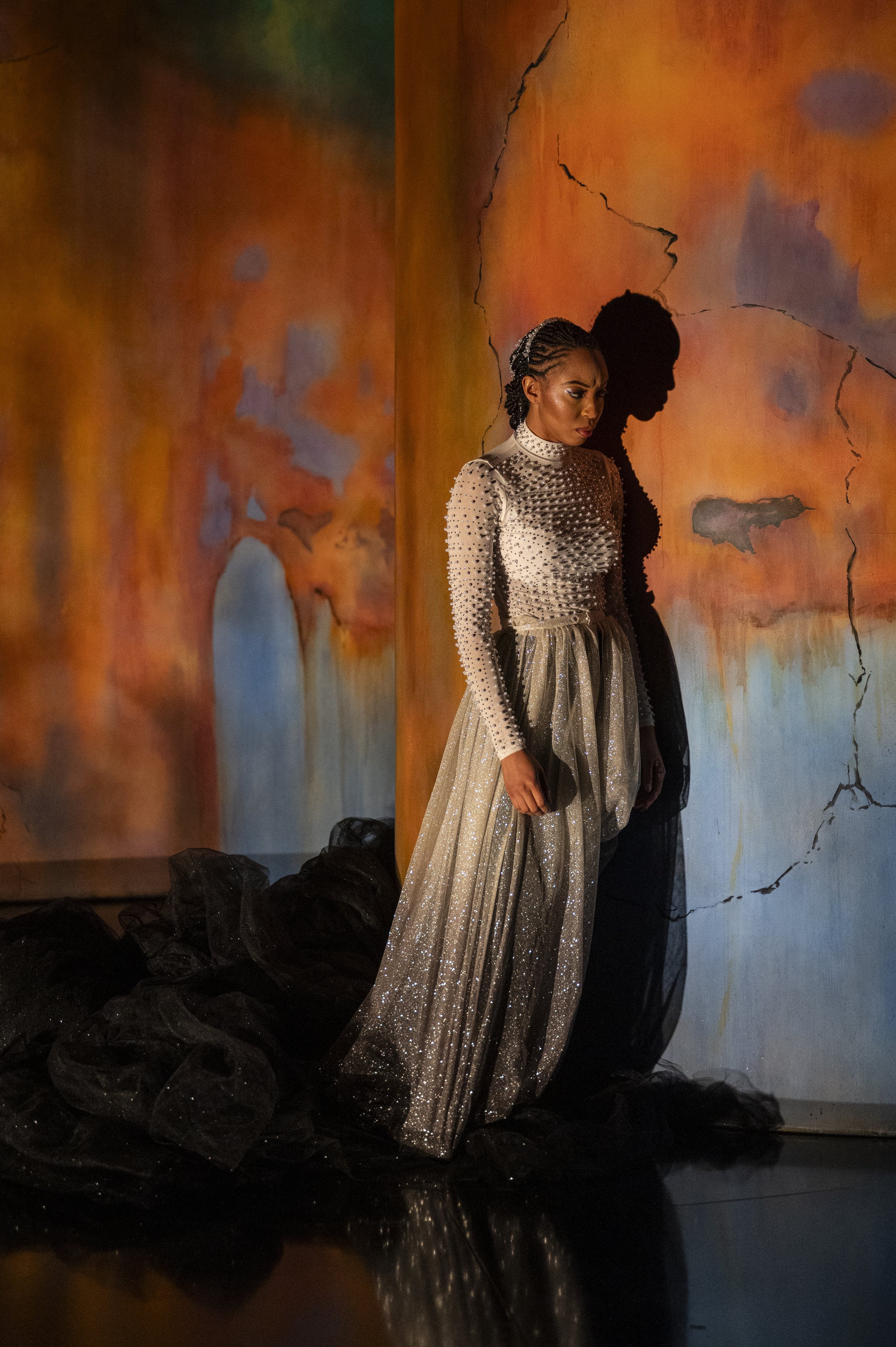
The eight-cast member production features Cheryl Lynn Bruce (Tiresias) and Ariana Burks (Ismene). Making their Court Theatre debuts, Cage Sebastian Pierre (Euboule), Matthew C. Yee (Haimon), and Julian Parker (Watchman). It's good to see Juian Parker spread his wings. He is an actor who should get more recognition for his creative style of owning the role. Another person making her Court debut is Danielle Davis. Davis blew me away with her performance in the lead role in Clyde at Goodman Theatre. She was outstanding as Demophilus and is one of Chicagoland's hidden gems. Why she isn't on a prominent Broadway production is mind-blogging. And Aeriel Williams has come a long way from first seeing her at Black Ensemble. She is very talented with the voice of an angel. She was amazing in Oedipus at Colonus, but she establishes herself in this role as Antigone. Her versatility and powerful presence on stage were stunning and exhilarating. There are so many actors in this production that I enjoy seeing on stage, with Timothy Edward Kane being one of my favorites. His performance in An Iliad was magnificent, and with the many roles I've seen him play at Court, Kane has masterfully excelled, provided grand performances, and is outstanding as the mean, ill-tempered tyrant, Creon. The set design was simplistic, a minimalist staging with bold and colorful hues to capture your attention for the evening of a Sophocles tragedy. Antigone is a bold adaptation that will surely get you rethinking what you know about the story of Sophocles and Greek tragedies.
⭐⭐⭐
Court Theatre
Antigone
By Sophocles
Translated by Founding Artistic Director Nicholas Rudall
Directed by Associate Artistic Director Gabrielle Randle-Bent
February 2 - March 2, 2024
Click the above logo for tickets and below for additional reviews.



